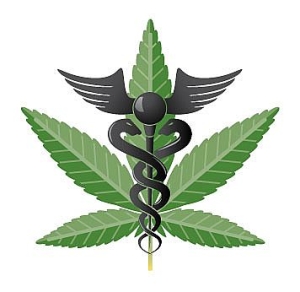Soon Floridians will be heading to the polls to vote in the upcoming election. Among important positions that will be voted upon, the decision to allow the sale of medical marijuana to qualified patients will be one of them. Currently, there are 23 states that legalized the use of medical marijuana, including Massachusetts, New Jersey and New York. In the previous general election of 2014, Florida marginally missed legalizing marijuana — 57 percent of voters said yes — since it takes 60 percent to make it into law.
In the past, there has been backlash against the use of medical marijuana. Many people believe that the legalization of medical marijuana would make it easier for teens to get access to marijuana for drug abuse. Dr. Sanjay Gupta, CNN’s Chief Medical Correspondent, was also once part of this group. However, after traveling the world to learn more about the world of medical marijuana and interviewing medical leaders, experts and patients, he not only filmed two documentaries about marijuana, titled WEED and WEED 2: Cannabis Madness, but also completely changed his standpoint in the medical marijuana debate. Now, Dr. Gupta is one of medical marijuana’s proponents. Dr. Gupta stated, “I apologize because I didn’t look hard enough, until now. I didn’t look far enough. I didn’t review papers from smaller labs in other countries doing some remarkable research, and I was too dismissive of the loud chorus of legitimate patients whose symptoms improved on cannabis.” To read more about his change of mind, Dr. Gupta wrote an article explaining his new mindset.
Many voters may not understand what the important compounds in marijuana, tetrahydrocannabinol (THC) and cannabidiol (CBD), are and why they are important medicines. Some strains of medical marijuana have a high concentration of a chemical called cannabidiol, a cannabinoid compound also known as CBD. CBD is not psychoactive because it has a low affinity to the CB1 and CB2 receptors in the body. While the mechanism of action of CBD is not well understood, CBD has various therapeutic purposes for sick patients not only in the state of Florida, but also all over the United States. Charlotte’s Web is one well known high-CBD strain of marijuana that is mentioned throughout Dr. Gupta’s documentaries. Charlotte’s Web is named after a patient, Charlotte Figi, who suffers from a rare and debilitating seizure disorder. After her family tried several treatments that did not work, they turned to marijuana producers to develop a strain high in CBD. This strain had an important impact in the management of Charlotte’s condition: she went from having 300 seizures per week before medical marijuana to two or three a month afterwards.
As of June 16, 2014, Florida governor Rick Scott signed a law that exempted a limited group of sick people from criminal punishment for using marijuana low in THC and high in CBD. Certain requirements must be met for patient use, such as medical diagnoses of cancer or chronic conditions that result in chronic seizures. The marijuana can only be administered in pill, oil or vaporized form, and smoking is prohibited. However, these stringent requirements leave many patients behind, such as those who can benefit from high THC strains — including multiple sclerosis patients and neuropathic pain patients.
THC is a psychoactive compound that activates the brain’s receptors to make one feel “high.” Despite its bad rap, THC provides important medical benefits for those suffering from pain, multiple sclerosis, nausea and wasting diseases. A synthetic form of THC, Marinol, is available through a prescription. Yet, for many patients, this is not adequate treatment, as they can benefit more from natural marijuana, which has other compounds like CBD. For these patients, their goal is not to get high. It is relief. And for some, medical marijuana is the only way.
Furthermore, it is also important to note that medical marijuana has a history that dates back to the earliest eras of medicine. Cannabis was first recorded thousands of years ago in Chinese herbal medicine books when people began to deliberately use plants for healing effects on the body, rather than as a source of nutrition. Cannabis continued to be an important part of herbal remedies, from cough syrup to painkillers, until the 1930s when it was abruptly prohibited in many parts of the world. Thus, legalizing medical marijuana will not be anything new.
So what role do physicians and medical students play in all of this? As health care providers, it is our responsibility to supply information to patients so that they can make informed decisions, inside and outside of the hospital. Whether medical marijuana will be directly used by one of our patients, or whether our patients have questions about the validity of the science behind the therapeutic nature of medical marijuana, it is our job to be able to explain that information to them. Being an informed provider makes you a better provider, and being knowledgeable on a subject that is quite pervasive in today’s media is critical to helping your patients understand what medical marijuana could mean to them or other patients. While it may be a sensitive subject to discuss with those that are more conservative, as physicians and medical students, we have all received the specific training to engage patients in talking about uncomfortable topics. Furthermore, the nature of the patient-doctor relationship is very unique because patients should feel that they can discuss their most private matters with their doctors. Thus, I argue that all healthcare providers should be prepared to have a discussion on medical marijuana with their patients should the topic arise.

